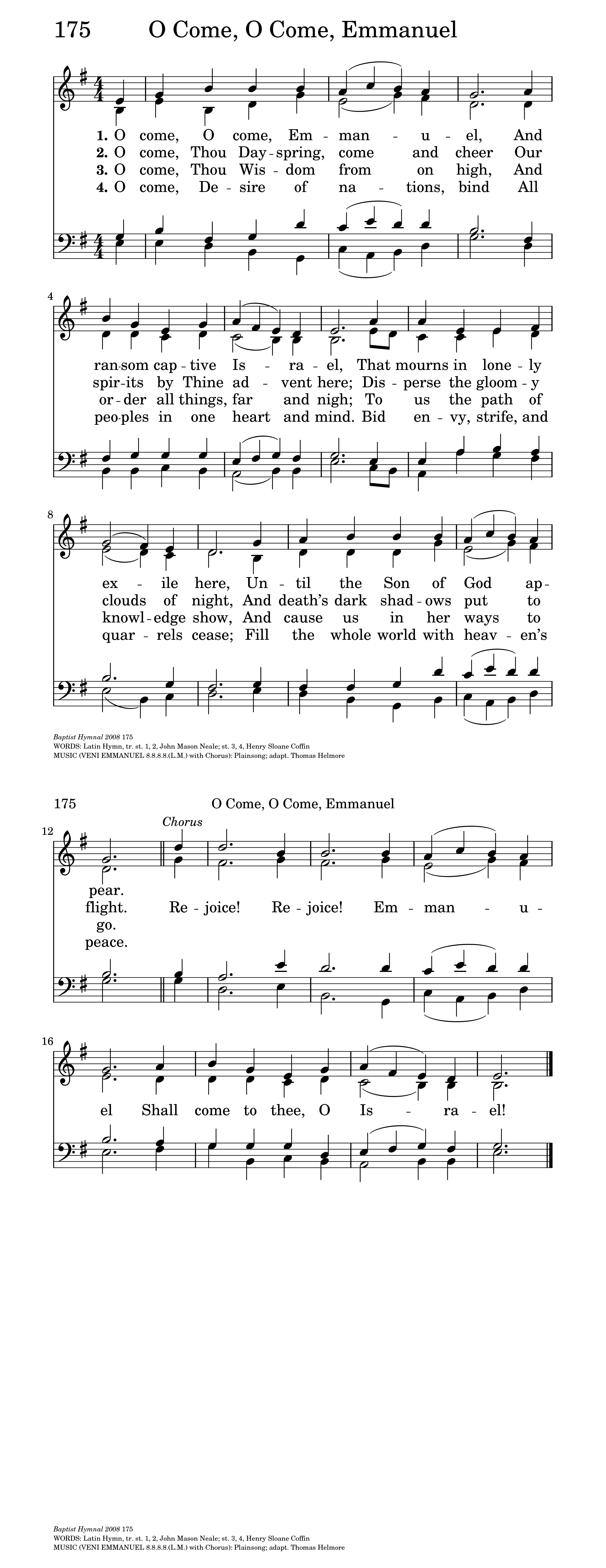and ransom captive Israel
that mourns in lonely exile here
until the Son of God appear.
Refrain:
Rejoice! Rejoice! Immanuel
shall come to you, O Israel.
2. O come, O Wisdom from on high,
who ordered all things mightily;
to us the path of knowledge show
and teach us in its ways to go. Refrain
3. O come, O come, great Lord of might,
who to your tribes on Sinai's height
in ancient times did give the law
in cloud and majesty and awe. Refrain
4. O come, O Branch of Jesse's stem,
unto your own and rescue them!
From depths of hell your people save,
and give them victory o'er the grave. Refrain
5. O come, O Key of David, come
and open wide our heavenly home.
Make safe for us the heavenward road
and bar the way to death's abode. Refrain
6. O come, O Bright and Morning Star,
and bring us comfort from afar!
Dispel the shadows of the night
and turn our darkness into light. Refrain
7. O come, O King of nations, bind
in one the hearts of all mankind.
Bid all our sad divisions cease
and be yourself our King of Peace. Refrain
The hymn "O Come, O Come, Emmanuel" dates back to the 12th century in its original form, although it has evolved over time. The text is based on the ancient "O Antiphons", a series of prayers used during the last seven days of Advent, from December 17 to December 23, in the liturgical calendar of the Church. These prayers were traditionally sung at Vespers (evening prayer) and invoked different titles for Christ, one of which is "Emmanuel," meaning "God with us."
The version of the hymn we are familiar with today was translated into English by John Mason Neale, an Anglican priest and scholar, in 1851. Neale's translation was based on the Latin hymn "Veni, Veni, Emmanuel," which itself drew from the "O Antiphons."
The musical setting most commonly used for the hymn is a medieval chant, which has been passed down through the centuries and continues to be sung today, particularly during the Advent season leading up to Christmas.



No comments:
Post a Comment